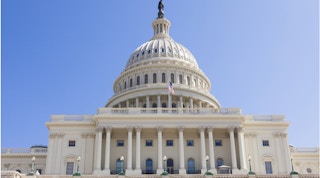
Cookies in use
John Lewis Voting Rights Advancement Act

The John Lewis Voting Rights Advancement Act would strengthen voting rights by expanding and strengthening the government's ability to respond to voting discrimination.
H.R. 14; S. 4
The Problem
The Voting Rights Act of 1965 included a requirement designed to ensure minority voters across the country are able to participate equally in the electoral process, which prohibited discriminatory voting practices and removed many barriers to voting. That law was critical in ensuring minority voting rights and stood on the books for nearly half a century, but in Shelby County v. Holder in June 2013, the Supreme Court invalidated a key provision of it. Among the invalidated provisions was an enforcement mechanism that prevented states from making changes to voting laws and practices if they have a history of voting discrimination, unless they clear those changes through federal officials. In Shelby, the Supreme Court ruled that the formula for deciding which states and localities have a history of voting discrimination (and were therefore required to pre-approve changes in voting laws and practices) was unconstitutional. This severely weakened the federal government’s oversight of discriminatory voting practices.
Since the Supreme Court’s decision, states and localities have brazenly pushed forward discriminatory changes to voting practices, such as changing district boundaries to disadvantage select voters, instituting more onerous voter identification laws, and changing polling locations with little notice. These laws especially disenfranchise people of color, the elderly, low-income people, transgender people and people with disabilities. Voters are more vulnerable to discrimination now than at any time since the Voting Rights Act was signed into law more than fifty years ago.
LGBTQ+ People and Voting Discrimination
Transgender people are particularly vulnerable to voting discrimination and disenfranchisement due primarily to challenges around valid identification documents. Many transgender people do not have forms of ID that reflect their true gender identity, either because they are in the process of changing their documents or because they face financial or legal barriers to doing so. In addition, many LGBTQ+ people face compounded discrimination based on other characteristics, including race, age, disability, and economic status. These vulnerabilities weaken our entire community’s voting power.
A 2019 HRC Foundation survey found that fear of or experiencing discrimination led 22% of LGBTQ+ adults, 35% of LGBTQ+ adults of color, 49% of transgender adults, and 55% of transgender adults of color to avoid voting in at least one election in their lives. It also found that an issue with meeting voter identification requirements prevented 24% of LGBTQ+ adults, 35% of LGBTQ+ people of color, 42% of transgender people from voting in at least one election in their lives. Furthermore, 46% of transgender people of color said they did not vote in one or more elections in their lives specifically because their ID had an incorrect gender marker, name, or photo.
What is the John Lewis Voting Rights Advancement Act?
Fortunately, the Supreme Court’s decision was limited in scope and recommended Congress create a new formula. The John R. Lewis Voting Rights Advancement Act does just that and restores the protections of the Voting Rights Act by:
Modernizing the VRA’s formula determining which states and localities have a pattern of discrimination;
Ensuring that last-minute voting changes do not adversely affect voters by requiring officials to publicly announce all voting changes at least 180 days before an election; and
Expanding the government’s authority to send federal observers to any jurisdiction where there may be a substantial risk of discrimination at the polls on Election Day or during an early voting period.
Current Status of the Bill
The John R. Lewis Voting Rights Advancement Act was reintroduced in the House of Representatives by Rep. Terri Sewell (D-AL-07) on September 19, 2023, and in the Senate by Sen. Dick Durbin (D-IL) on February 2, 2024.
For more information, please contact legislation@hrc.org. Read about other Federal Legislation pertinent to the LGBTQ+ community here.
Last Updated: April 7, 2024
- Topics:
- Laws & Legislation
- Elections
Love conquers hate.
Image:
HATE WON'T MAKE US GREAT!
100% of every HRC merchandise purchase fuels the fight for equality.

